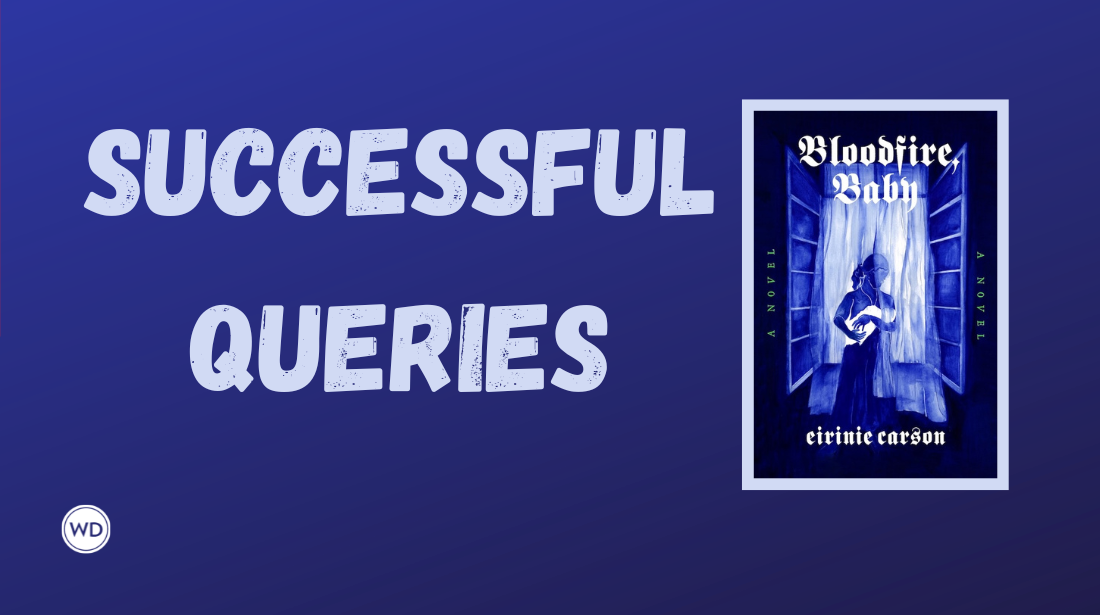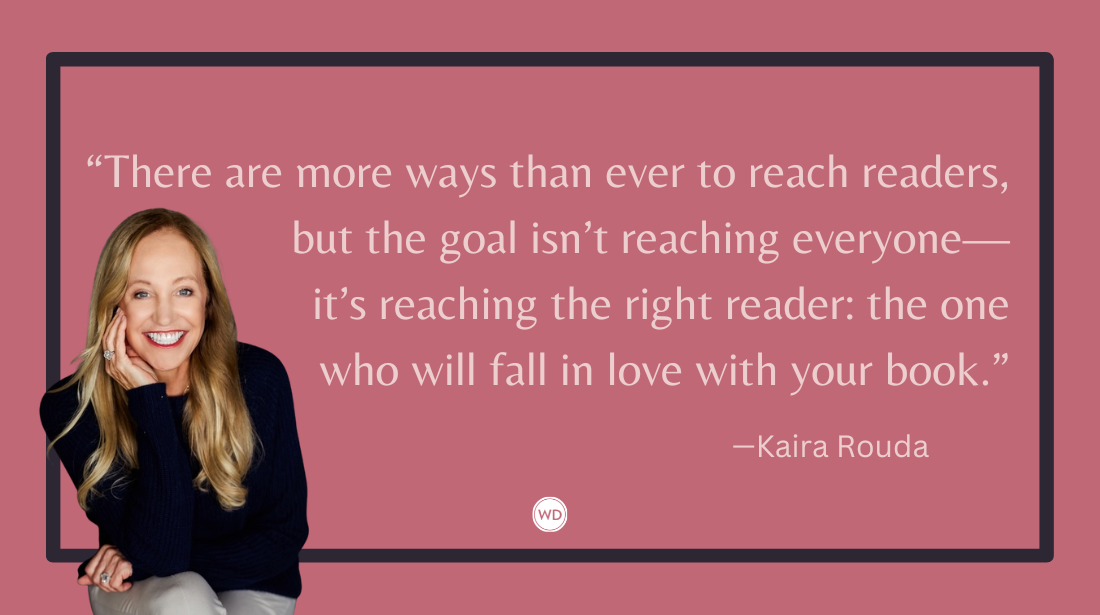The Relationship Between Authors, Agents and Publishers
Today’s guest post is by John Rember, author of MFA in a Box, as well as a memoir and two short story collections. He is Writer at Large at The…
Today's guest post is by John Rember, author of MFA in a Box, as well as a memoir and two short story collections. He is Writer at Large at The College of Idaho.
--
It was a good novel. It was going to need a little attention from an editor willing to shape it for a specific readership, but it passed the Barnes & Noble test: it was more interesting and better written than at least half of the books on the New Releases table.
It was a classic bildungsroman. The narrative character was an intelligent young woman, still in high school in rust-belt America, hired part-time by a medical research lab at the start of the AIDS epidemic. She used her new awareness of the wider world and its tragedies to deepen her own capacity for love and empathy, and to leverage herself into an Ivy League university. By the novel’s end, she understood and forgave the harsh forces of family and economy that had shaped her.
The author was one of my MFA students, and she had sent the novel to two agents to see if they would represent it, and as often happens in these matters, both of them chose the same week to notify her that they would pass on it.
It was a bad week for her, and a bad week for me. You hope to see your students succeed, even if it’s only in their search for an agent. In a gentler system, an agent would have taken her on and spent time and effort finding an editor who would have loved the book and fought for its publication. That didn’t happen. I hope it does. I don’t think it will.
Agents aren’t at all like Broadway Danny Rose. They should be, but they aren’t. I don’t currently have or want an agent, but I started with one of the more high-powered agents in the business, now known to me only as She Who Must Not Be Called Spider Woman. Working with her cost me a fair amount of my blood supply. The manuscript for my memoir Traplines, eventually published by Pantheon, came back from her office by return mail.
My current relaxed attitude toward my own writing, which is that I’m content to be posthumously famous, is a direct result of working—or not working—with this agent.
But my troubles with my agent were never her fault. They were inherent to the relationship between agents and writers, which is a predator-prey kind of deal. Agents are not hoping to find, in you the writer, a diamond in the rough, a talent to be nurtured, a friend to be encouraged. They’re looking for the next John Grisham and they’re looking for 15% of a multi-million dollar advance. They are cold and hard businesspeople—if they aren’t, they end up living under bridges, and not the bridges in the Hamptons—so your talent or niceness is not their first consideration.
Many writers assume that with the big houses, a few bestsellers subsidize midlist writers. That’s the way it used to work. Now the CFOs of publishing houses demand that every book be a money-maker. In practice, this means editors are told to look for the next bestseller, and they, not being psychic, think that it looks like the last bestseller. Hence John Grisham, James Patterson, Dan Brown, and the dead Swedish guy.
And hence the advice I’ve given to my students who want to make money as writers: Look carefully at the structures, characters, and language of bestsellers if you want to be taken seriously by agents or editors. It’s not bad advice—J.K. Rowling was following Tom Brown’s School Days when she sent Harry Potter off to Hogwarts—but it’s seldom advice that new writers with literary ambitions want to hear.
It certainly isn’t what you want to hear when it means that you have to rewrite a novel that you’ve poured years of life into, especially if rewriting means eliminating subtleties and ambiguities, and simplifying characters. You don’t want to hear that you were writing for your reader’s neocortex when you should have been focusing on her limbic system. It’s occurred to me that every MFA program should include a course in neurology.
But there is hope, however perverse: the publishing industry is going through a climate change Al Gore could only dream of. Publishers have little idea about what will happen with e-books, although anyone not in Gaddafi-style denial knows they’re going to be the The End of the World As We Know It.
And self-publishing is easier and cheaper than ever. The trouble is, you have to be your own marketing department and quality control. Traditional media won’t normally review self-published books unless you’ve become notorious or you somehow manage to sell a hundred thousand copies. Publisher’s Weekly does not look favorably upon books that haven’t come from their mainstream clients.
The Huffington Post has featured several articles written by authors who are taking their work directly to Kindle. So far they’re vampire-genre books, but I expect that more and more literary works will go directly to e-distribution, especially once Amazon hires a heavy-duty acquisitions editor. If enough e-copies sell, they’ll think about printing hard copies.
Traditionalists are dismayed by this situation, but the arithmetic can be more favorable for a midlist writer than the author-agent-editor-publisher daisy chain we’re used to.
My latest book is MFA in a Box: A Why to Write Book. My editor at Pantheon passed on it when I offered it to him—when he mentioned the dead Swedish guy, I said I didn’t mind dying for art, but I drew the line at becoming Swedish.
I went looking for a university press, but then Dream of Things Publishing appeared on the scene, with a business model that is taking advantage of the opportunities left by the ongoing collapse of the old system.
Mike O’Mary, the Dream of Things publisher, is trying to look at the current realities of the business, and to fill a need, and to make money. Here’s his booklist so far, and all of them pass the Barnes & Noble test:
- Saying Good-bye, a collection of wise, humorous, and deeply human stories about loss. O’Mary is shopping it to hospice and hospital organizations and college psychology classes, with encouraging results so far. [Disclosure: It’s edited by Julie Rember, the person I’m married to, who knows a good story when she hears one.]
- Everything I Never Wanted to Be, the comedienne Dina Kucera’s authentic, affecting, dark and funny memoir of addiction and family dysfunction.
- My MFA in a Box, which is a writer’s memoir focused on making the lives of writing students easier and happier. It’s an existential instruction manual for anyone in an MFA program. And it’s a defense of going through life as an artist, even if you don’t get rich at it.
- The Note, Mike O’Mary’s short and elegant book about how to recognize situations that require gratitude, and how to express gratitude when you’re wise enough to feel it.
Within a year of start-up, Dream of Things has acquired four high-quality niche books, identified organizations and individuals as likely readers, and is making a profit. O’Mary’s costs are low because payment for writers comes out of receipts, not advances. He uses print-on-demand and generally doesn’t take returns, which means you’ll never see a Dream of Things book on the Barnes & Noble New Releases table.
But O’Mary’s business model allows him to use literary quality as a major criterion. It also can be better for writers, who can sometimes be confused by the accou
nting methods of mainstream publishers.
Dream of Things is doing something that mainstream publishers haven’t done in a long time, which is to work with writers to actively craft their books.
Over the next couple of years, Dream of Things—like Barnes & Noble and a bunch of fine old names in New York publishing—will make it or won’t.
But so far I’ve made more on MFA in a Box than I’ve made on some of my other books, and working with Dream of Things has been a pleasure. It’s been the sort of deal that an agentless posthumous writer with a few good stories can feel happy about.
--
John Rember’s weekly blog on writing can be found at mfainabox.com.
Jane Friedman is a full-time entrepreneur (since 2014) and has 20 years of experience in the publishing industry. She is the co-founder of The Hot Sheet, the essential publishing industry newsletter for authors, and is the former publisher of Writer’s Digest. In addition to being a columnist with Publishers Weekly and a professor with The Great Courses, Jane maintains an award-winning blog for writers at JaneFriedman.com. Jane’s newest book is The Business of Being a Writer (University of Chicago Press, 2018).









